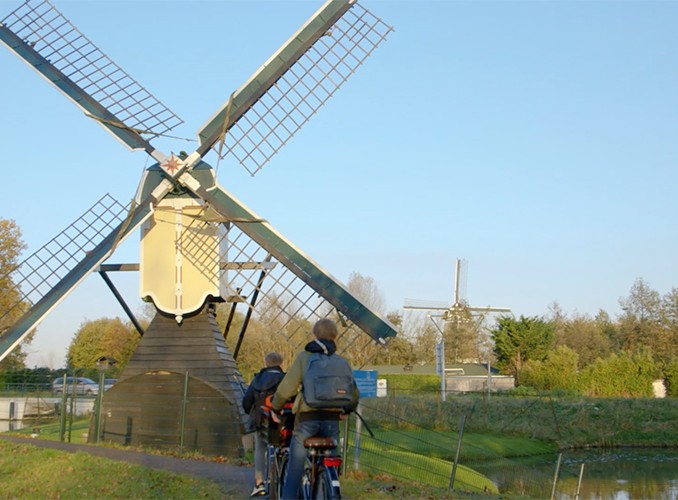What are the legal aspects of marriage for expats living in the Netherlands?
Say YES To The Dress and to the applicable law on your matrimonial property
Thinking of getting married? If so, that means making arrangements for the wedding, choosing a dress, viewing potential venues and so on. But have you also thought about the legal aspects of marriage? More specifically, have you considered to which country’s law your matrimonial property is subject, and what consequences this might have?
Perhaps you are already married and moved to the Netherlands either just recently or some time ago. In that case, you need to be aware that the regime on your matrimonial property may be subject to change.
There are two options under the Dutch regime on matrimonial property
You can get married under either:
- a ‘community of property’; or
- a prenuptial agreement.
If you do not make any specific arrangements about your matrimonial property, Dutch law automatically assumes that you and your spouse have formed a ‘community of property’.
Let’s say that you draw up a prenuptial agreement
If you decide to draw up a prenuptial agreement, Dutch law stipulates that this should be done by a civil-law notary (notaris in Dutch). A prenuptial agreement is a contract between you and your spouse in which you make certain arrangements about your property before the marriage, about items of property acquired during the course of the marriage, and also about the division of the property in the event of the marriage being dissolved. The law allows you a great deal of contractual freedom: you can more or less make whatever arrangements you wish to make to suit your specific circumstances.
Three common clauses appear in most prenuptial agreements:
1) The preclusion of any claim by one spouse on assets accruing to the other spouse during the marriage
There is a special term in Dutch law for an arrangement under which a spouse retains his or her assets and there is no set-off of claims and counterclaims if the marriage is dissolved: koude uitsluiting. This means that the prenuptial agreement does not contain a set-off clause.
2) Regular set-off clause
Under a regular set-off clause, the spouses agree to settle between each other, at regular intervals (every year, for example), their income and any assets that have been saved, i.e. not spent on household expenses.
However, many spouses fail to perform this type of settlement during the course of their marriage, even where they have agreed to do so . This may cause certain problems at a later stage. For this reason, the law states that all assets owned by the spouses at the time of a divorce are deemed to form part of the property that is subject to set-off.
3) Final set-off clause
On account of the statutory provision described above, a regular set-off clause that is not enforced is more or less the same as a final set-off clause, given that the spouses end up settling their income and assets at the end of the marriage. If the prenuptial agreement contains what is known as a ‘final set-off clause’, this explicitly states that the spouses will settle their income and assets at the end of the marriage.
Let’s say that you are married under a community of property
If you don’t get a civil-law notary to make up a prenuptial agreement for you, this means that you are automatically married under a community of property.
The Dutch law on the community of property is due to change radically on 1 January 2018. Anyone who gets or got married under the community of property principle before 1 January 2018 is subject to a regime that has been part of Dutch law ever since 1838. It’s a unique system: no other European country has quite such an extensive system of communal matrimonial property as the Netherlands.
In theory, as from the moment on which both spouses say ‘I do’ during the marriage ceremony, all their property is assumed to form part of a community of property. This means that all their assets and debts prior to the marriage also fall under the same community of property. These could include, for example, a student loan obtained by one of the spouses and a house owned by the other spouse. Each spouse is entitled to precisely half of the matrimonial property.
New community of property regime takes effect on 1 January 2018
However, if you get married after 1 January 2018 without making a prenuptial agreement, your marriage will be subject to a new community of property regime.
Under this regime, only those items of property that are acquired during the course of a marriage are regarded as being communal property. In other words, a matrimonial community of property consists exclusively of goods acquired by or on behalf of both spouses during the course of the marriage. Gifts and inheritances are regarded as being personal and do not therefore form part of the community. Nor do any debts pre-existing the marriage. This means that, in the event of a divorce, any outstanding debt arising from a student loan is not shared equally between the former spouses. Instead, it is the sole responsibility of the spouse who actually incurred it.
The same applies if one of the spouses receives an inheritance during the course of the marriage. Unlike the present situation, all inheritances and gifts are automatically regarded as being personal items of property. This means, for example, that inheritances do not need to be shared in the event of a divorce.
What if you’re already married?
If you’re already married, the key question is to which country’s law your matrimonial property is subject. If you made a prenuptial agreement before getting married, chances are that the agreement contains a clause specifying the ‘applicable law’, as it is known. The Dutch courts will respect your choice.
If you have not specified an applicable law, however, and you subsequently get divorced, the court will decide which country’s law is applicable on the basis of private international law. In most cases, the court will opt either for the law of the country of your first place of residence after your marriage, or, if both you and your (former) spouse are nationals of the same country, for the law of that country.
If you get married on holiday, this does not automatically mean that your matrimonial property is subject to the law of the country where you spent your holiday. After all, it is not your country of residence. Again, the court will generally look at your first place of residence after you got married or, if you and your (former) spouse are nationals of the same country, at the country of your nationality.
The applicable law may change
Don’t forget that, even if you chose an applicable law before getting married, it may change if you emigrate or acquire Dutch nationality. You won’t be told about it if this happens. The fact that the applicable law has changed will become apparent only if a court needs to decide to which country’s law your matrimonial property is subject – as will happen, for example, if you wish to obtain a divorce.
The Hague Convention on the Law Applicable to Matrimonial Property Regimes
As far as the choice of applicable law is concerned, Dutch private international law is based on the 1978 Hague Convention on the Law Applicable to Matrimonial Property Regimes. This states that two basic considerations determine which country’s law is applicable: nationality and place of residence. In other words, a change in your place of residence or nationality may lead to a corresponding change in the applicable law.
The matrimonial property regime changes after 10 years of permanent residence
If you have settled permanently in the Netherlands and have lived here for more than 10 years, you automatically become subject to the Dutch law on matrimonial property as from the date on which you have lived in the Netherlands for 10 years. The community of property principle takes effect from this date, albeit not retrospectively. This means that any new items of property you acquire, such as a house, henceforth form part of a community of property. As from 1 January 2018, any new items of property will fall under the new community of property regime. Items of property acquired before 1 January 2018 remain subject to the previous applicable law.
The matrimonial property regime may change if you obtain Dutch nationality
The law to which your matrimonial property is subject may also change if you acquire Dutch nationality. If you and your spouse both become Dutch nationals, your matrimonial property will be subject to Dutch law as from the date on which you both obtain Dutch nationality. Here too, the change in the applicable law is not retrospective. Bear in mind, though, that this could mean that your matrimonial property may be subject to different applicable laws.
Interested in finding out more about the law on matrimonial property?
Feel free to get in touch with me or one of my colleagues if you’d like to find out more about the legal aspects of marriage or which country’s law applies to your matrimonial property.








